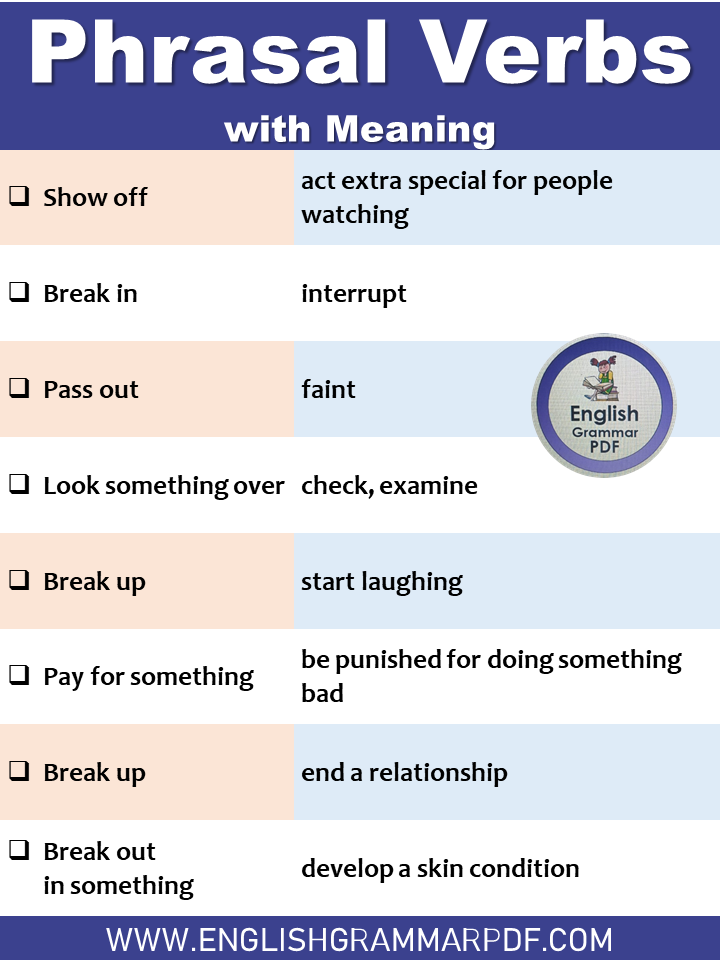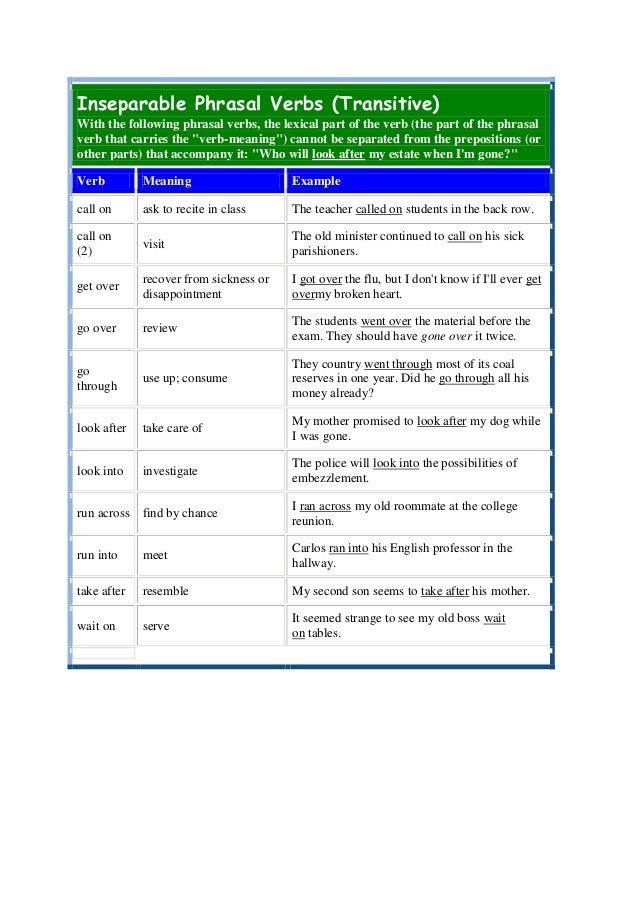
To include an object we have to use another preposition.

For example: He never turns off the lights or He never turns the lights off.If a noun can go between the verb and the particle that phrasal verb is separable. Most transitive phrasal verbs can have the noun go after or between the verb and the particle.An intransitive verb does not require a direct object.A transitive verb requires a direct object.Phrasal verbs are either transitive or intransitive.Yet, for our students, the number of phrasal verbs and the rules around phrasal verbs can make learning them intimidating.ĭo I pick up, pick on, pick at, or pick over? Do I pick it up or pick up it? Phrasal verbs can be overwhelming however, they are governed by a few basic rules. Our students need phrasal verbs to make their spoken English more natural and conversational. Without them, our students’ spoken English can appear too formal. Phrasal verbs are never used in academic writing, yet phrasal verbs seem to be everywhere in spoken English.

Phrasal verbs are perhaps the best-known example of the difference between formal and informal English.


 0 kommentar(er)
0 kommentar(er)
